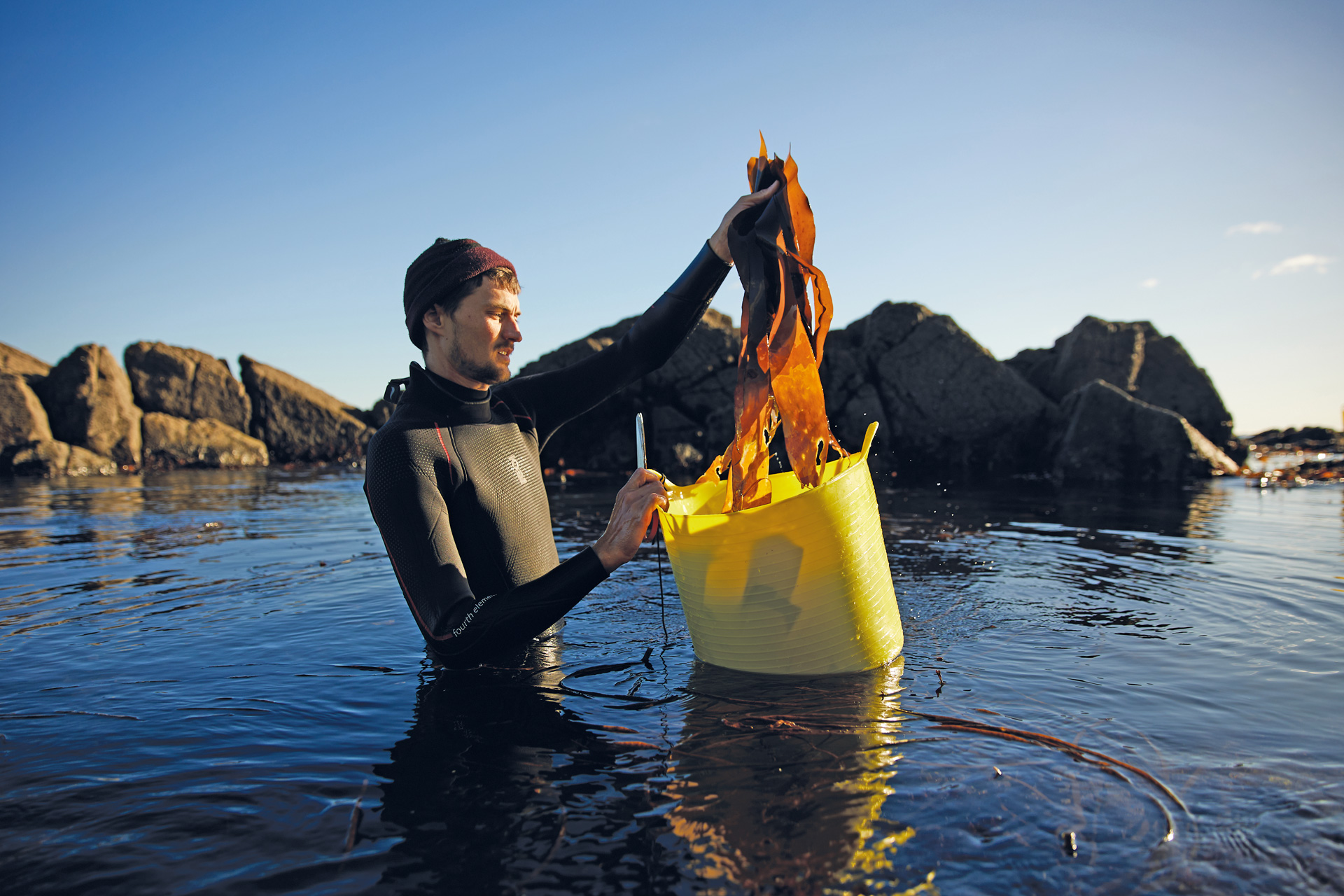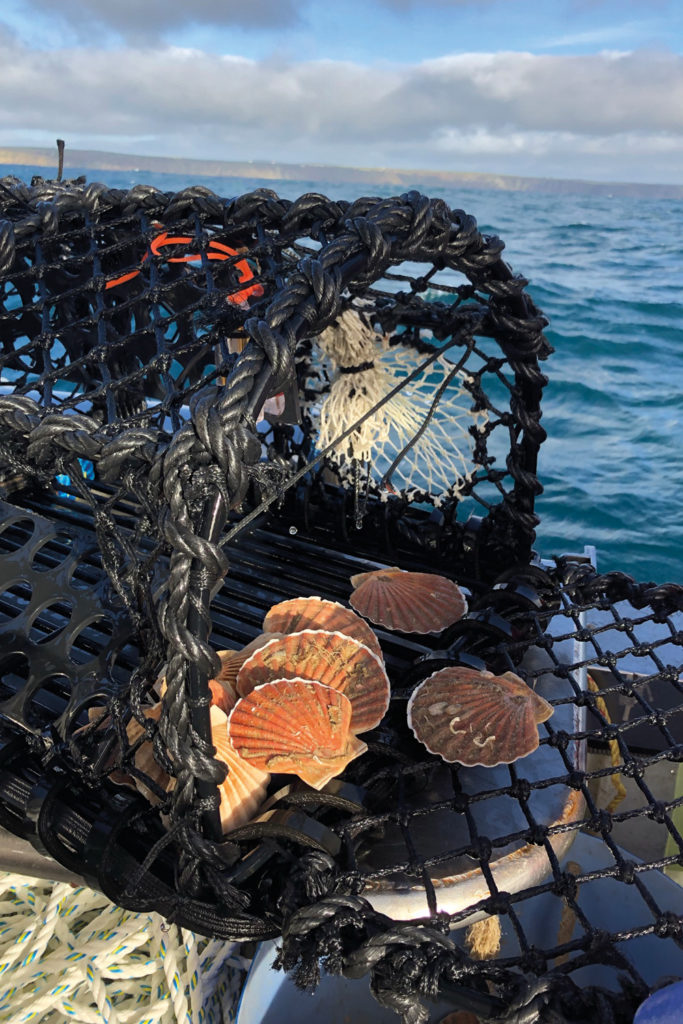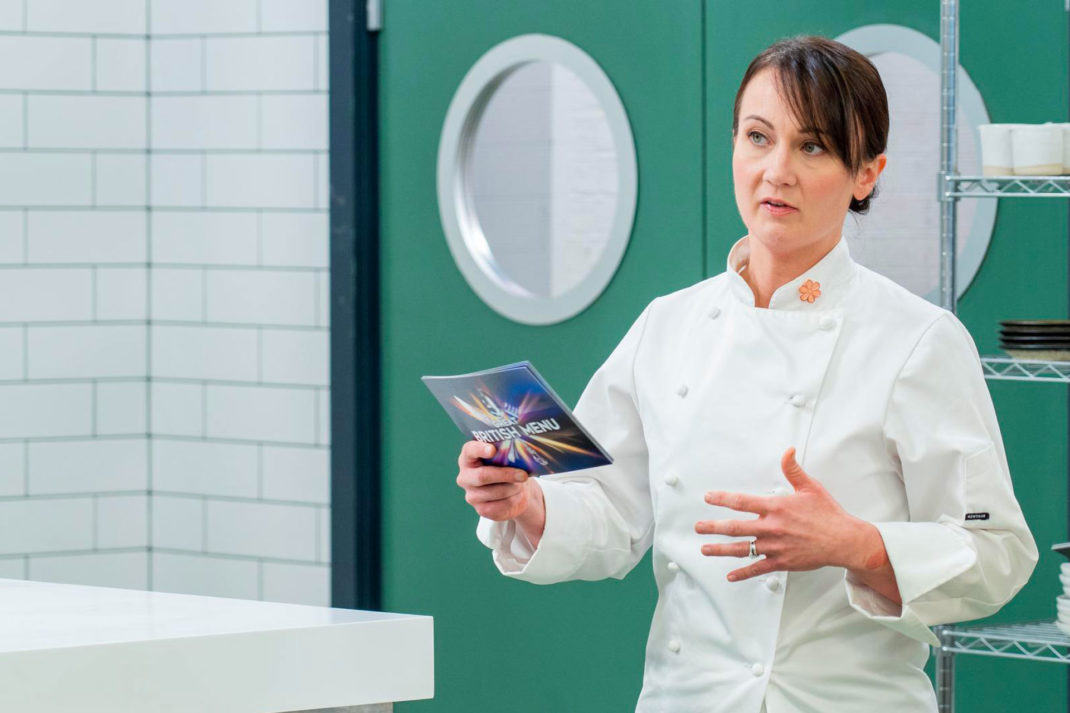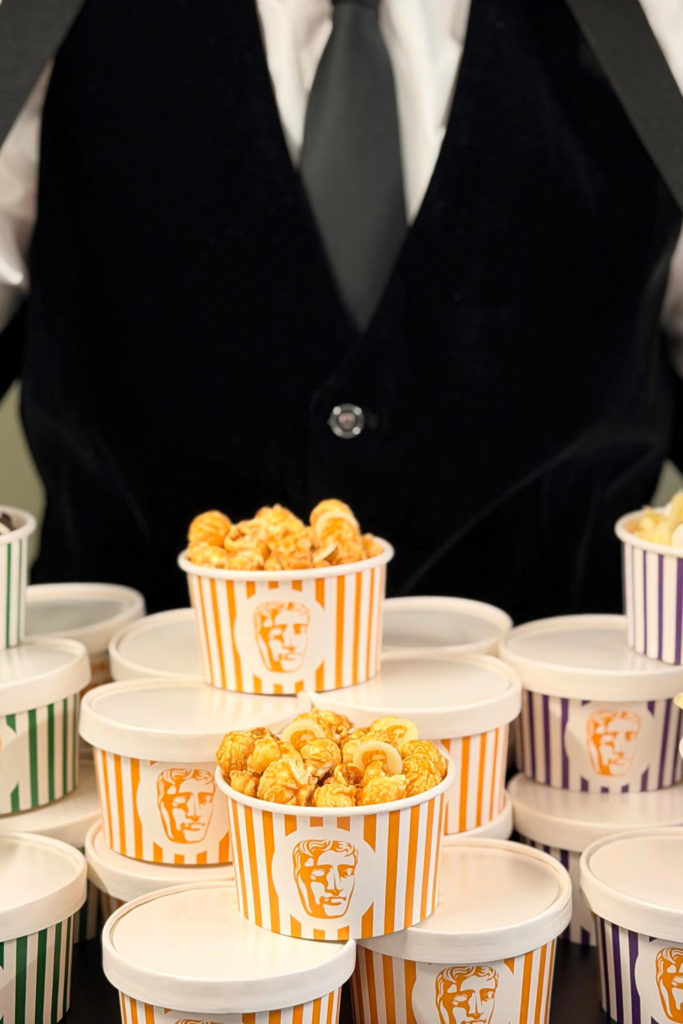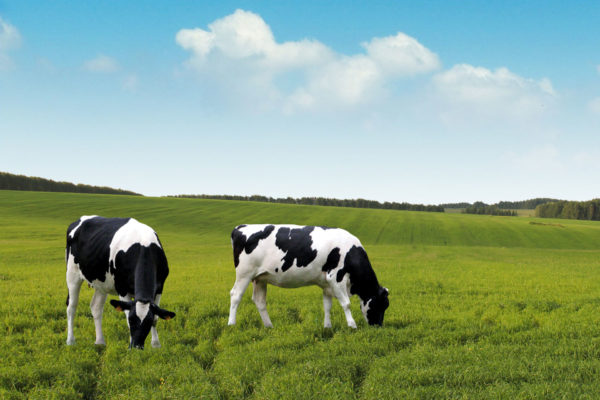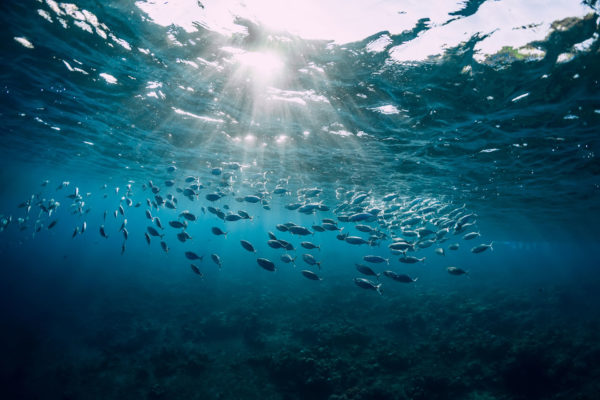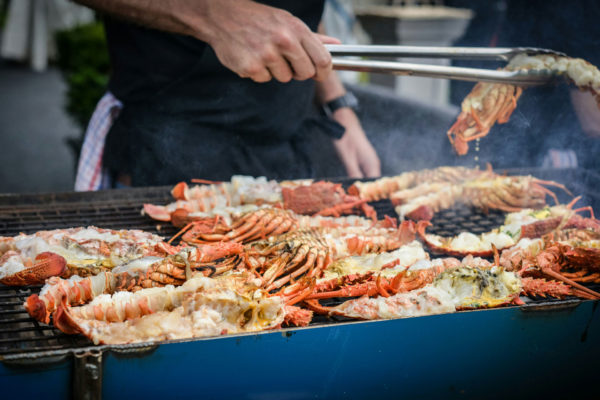Can Regenerative Aquaculture Transform Our Food System?
By
7 months ago
Here's how low-impact aquatic farming could boost food security
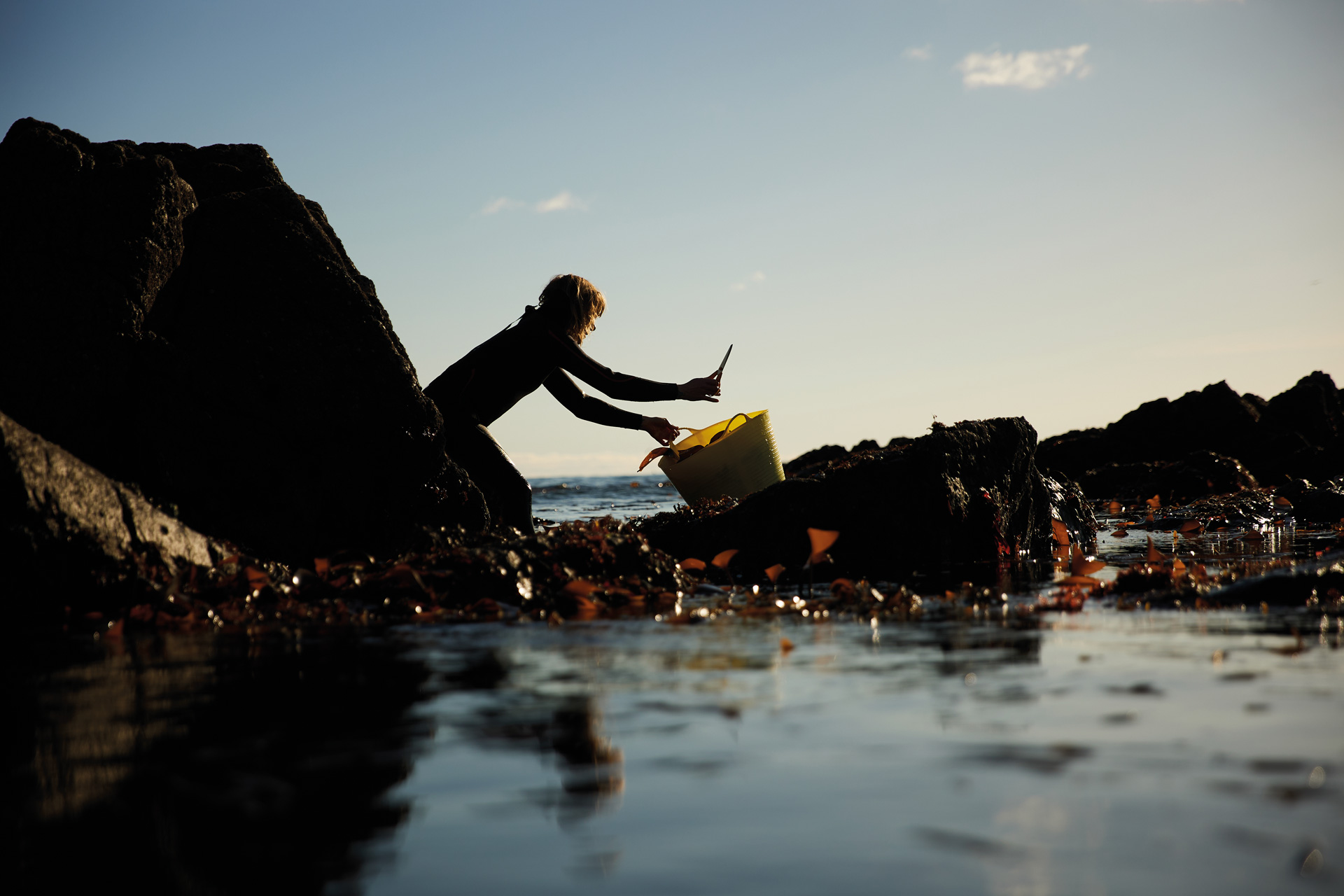
Can we harness the power of aquaculture to help forge a sustainable future for British food production, asks Jenny Jefferies
What Is Regenerative Aquaculture?
We are an island nation – and with more than 19,000 miles of bountiful coastline, 11,000 fishermen, and about 950 independent fish shops, market traders and fishmongers, the British fishing industry brings in more than £1bn to the UK economy. UK fishing individuals and businesses work hard all year round to ensure that the seafood on our plates is environmentally, ethically and economically sustainable.
Regenerative aquaculture goes one step further – and this is now an opportunity for us all to come together and find out how so many different people help put British fish and seafood on to our tables in a low-impact way, conserving not only the fish and seafood stocks, but also our sustainable fishing communities.
Mussels
Seaweed and shellfish aquaculture can improve ocean health and biodiversity, meaning it is also regenerative for our oceans. The sustainability of global mussel farming and keeping our oceans beautiful is a huge passion for many in the marine and shellfish industry. Mussels can be grown on ropes suspended in the water, meaning there is little to no habitat disruption. They feed naturally by filtering algae and other plankton, which improves the quality of the surrounding water. In addition, many mussels are free of any growth promoters or other additives such as fertilisers, making them an all-natural product.
Mussels are little powerhouses of nutrition and are often referred to as ‘the superfood of the sea’. Shellfish are amazing. Containing nearly five times the amount of vitamin B12 as salmon and three times the haem iron of a rump steak, they are also extremely high in omega-3, selenium, iodine and protein, are a great source of fibre, and often have a low carbon footprint. The reputation of mussels as a sustainable, nutrient-dense protein source continues to grow and they should be an integral part of our diets – both in the UK and around the world.
‘Our innovative offshore rope-grown farming techniques have been designed to create thriving ecosystems beneath the waves,’ says Sarah Holmyard of Offshore Shellfish. ‘By growing mussels in a regenerative way, we contribute to both high-quality food production and the restoration of the ocean’s delicate balance – enhancing biodiversity, providing a sanctuary for a diverse array of marine life, and supporting the health of the surrounding environment. By establishing our farms offshore, they can operate in harmony with nature, far from the pressures of land-based systems.’
Seaweed
Another super-sustainable natural product is seaweed – or ‘nature’s silk’, as I like to call it. ‘With increasing competition for land, more extreme weather patterns, and increasing risk to our national food security, seaweed cultivation can and should play an increasingly important role as a versatile crop,’ says Tim van Berkel of the Cornish Seaweed Company. ‘It does not compete for land, and does not require fresh water, pesticides or artificial fertilisers to grow. Seaweed farms are even known to boost biodiversity and absorb the nutrient run-off from terrestrial farms.’ Seaweeds also grow fast; with its ample coastline, the UK is one of the best-placed countries to capitalise on its potential.
Apart from its use as a food source, seaweed continues to be developed into novel products, and Cornish Seaweed is involved in several research projects. ‘We are conducting trials on how to cultivate seaweed onshore,’ says van Berkel, ‘and we are also researching the effects of our biostimulant, made from our sugar kelp grown in our offshore farm, on soil health, seed germination and the growth of various crops, and are collaborating with research organisations to develop a textile made from seaweed.
‘Challenges remain though – seaweed is still relatively expensive compared to subsidised conventional crops and petroleum-based products, so the price needs to come down, which we are trying to achieve through mechanisation, scaling and smarter cultivation techniques.’
Disco Scallops
Technology is innovation’s best friend – and scallops are no exception. In the UK, about 95 percent of scallops are caught by dredging, a destructive fishing method that involves dragging heavy, toothed metal sleds across the seabed. However, pot-caught scallops offer a low-impact alternative where the scallops simply swim – attracted by LED lights – into modified crab pots. Unlike towed dredges, scallop pots are static and therefore aren’t destructive to marine habitats and species.
The discovery that scallops – which have 200 tiny eyes – could be caught in pots fitted with LED lights was made in 2022 by scientists from Fishtek Marine, a world leader in bycatch prevention technology. It happened while trialling small underwater lights, invented by the Devon-based company to protect fish stocks by replacing the need to use fish as bait in crab and lobster pots.
Working with Jon Ashworth, a fisherman based in Newlyn, Cornwall, Dr Rob Enever and his team at Fishtek Marine discovered that the lights, combined with specially modified pots, were attracting unprecedented numbers of scallops in addition to the crabs and lobsters Ashworth was targeting.
A new low-impact inshore fishery – offering an alternative to damaging dredge-caught scallops – has now been created. More than 40 boats are using the technology to commercially catch Disco Scallops™. Together with Fishtek Marine and restaurant entrepreneur Lee Cash, they have registered the brand and created the Disco Scallop Collective to market the sustainable shellfish and encourage more fishermen to access subsidised fishing gear.
‘By putting modified pots in the water, fishermen are being given a chance to diversify their catch and secure new income streams, while consumers gain access to a sustainable, seabedsafe scallop they can enjoy guilt-free,’ says Rachel Walker of the Disco Scallop Collective. ‘It’s exactly what environmentally conscious diners have been calling for – delicious seafood with a story they can stand behind.’ As awareness of Disco Scallops grows, the hope is that a ripple effect will extend across the UK. ‘More crab and lobster fishermen will learn how they can diversify their existing catch, moving toward a more secure and balanced future for their livelihoods – and more restaurants will join the movement toward responsible sourcing, making this ethical alternative the new standard.’
Pete Kibel, co-founder and director of Fishtek Marine, adds: ‘This is a great example of how a technological innovation can deliver real and sustainable benefits for the marine environment, and the communities that depend on the sea for their livelihoods.’ Through Open Seas’ ‘Dived Not Dredged’ campaign – which champions hand scallop diving and low-impact seafood – the organisation collaborates with low-impact fishermen, the hospitality sector and food influencers to spotlight the importance of sustainable and transparent seafood sourcing and labelling. Catch method is a key factor in seafood sustainability and by fostering informed conversations, it aims to drive positive change – benefiting marine habitats, coastal communities, and seafood lovers alike.
The phenomenal harvest of mussels, seaweed and scallops – along with the ingenuity, passion and integrity of humankind – can be enjoyed in a sustainable way. We can now continue to look forward to a regenerative future, which must include lending respect and wonder to the power and magic of the sea, and to what lies within.
Jenny Jefferies is an award-winning author, food columnist, producer and campaigner


